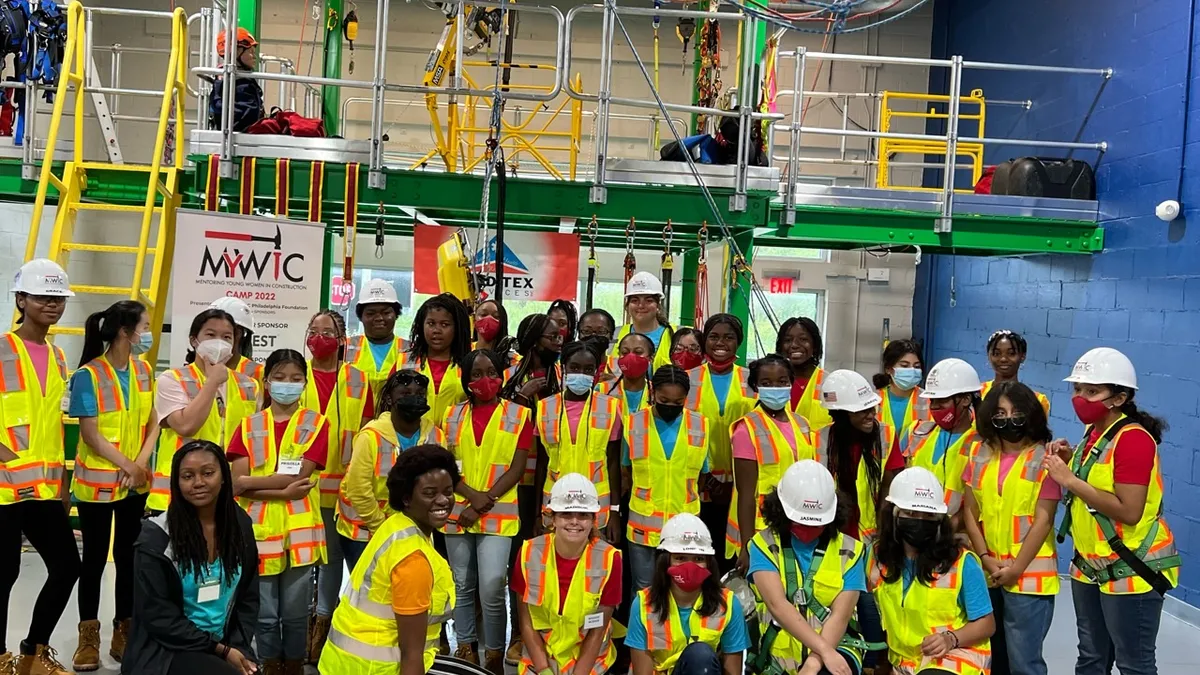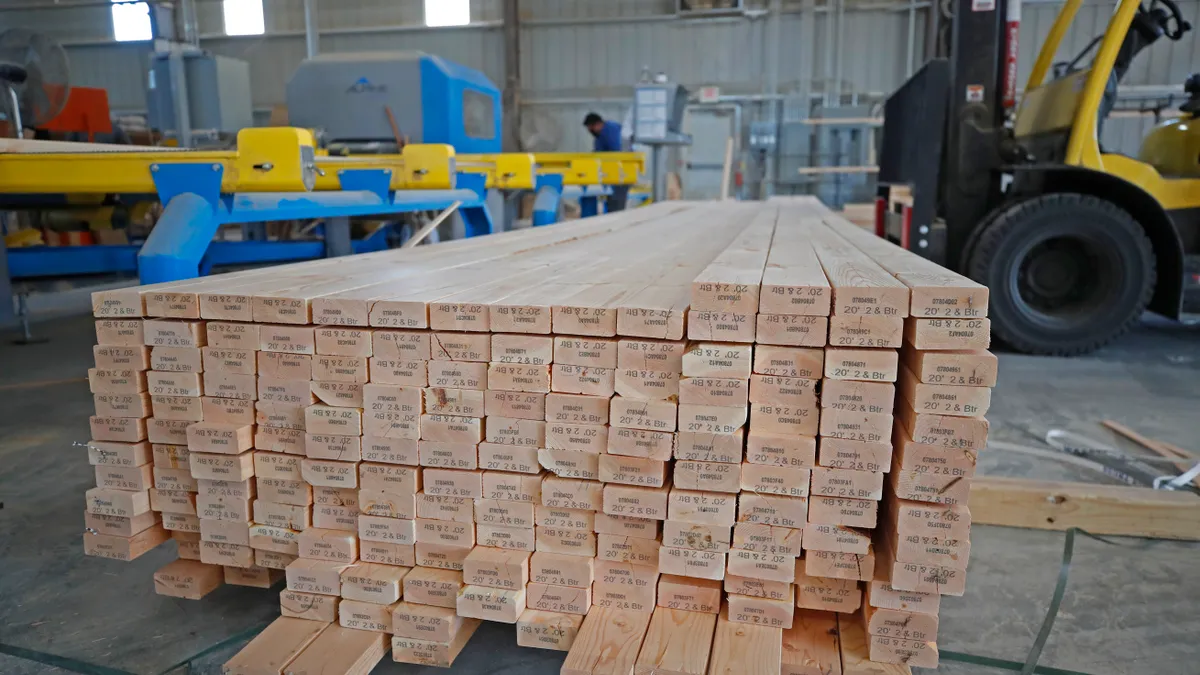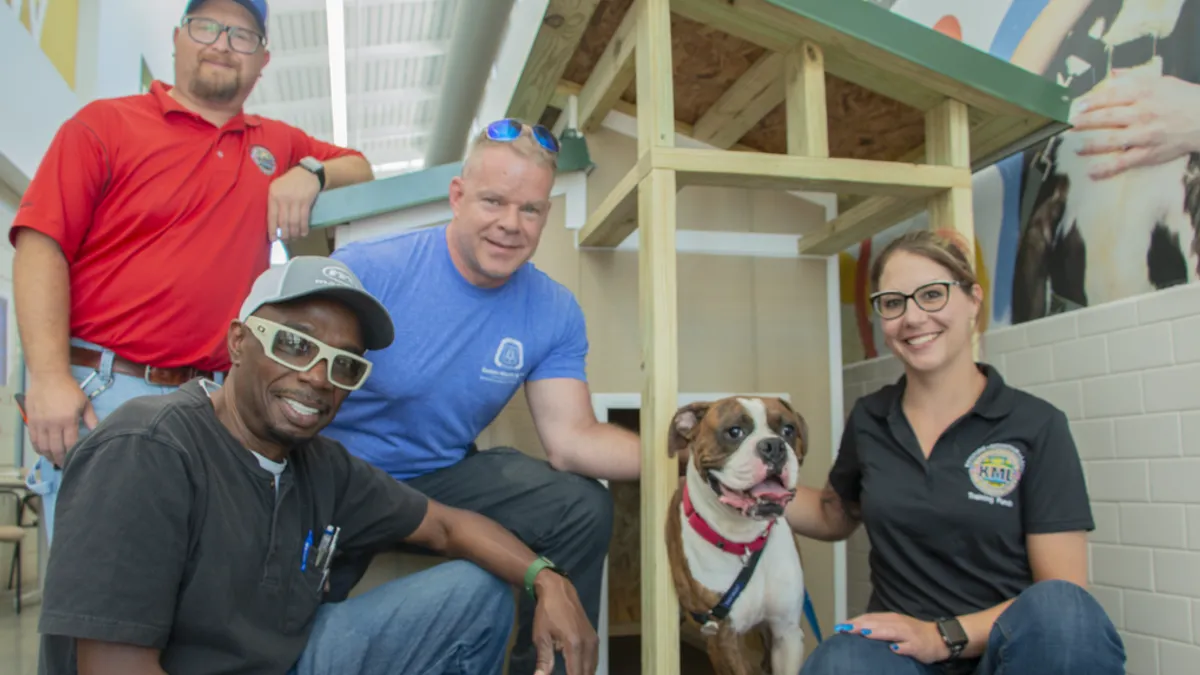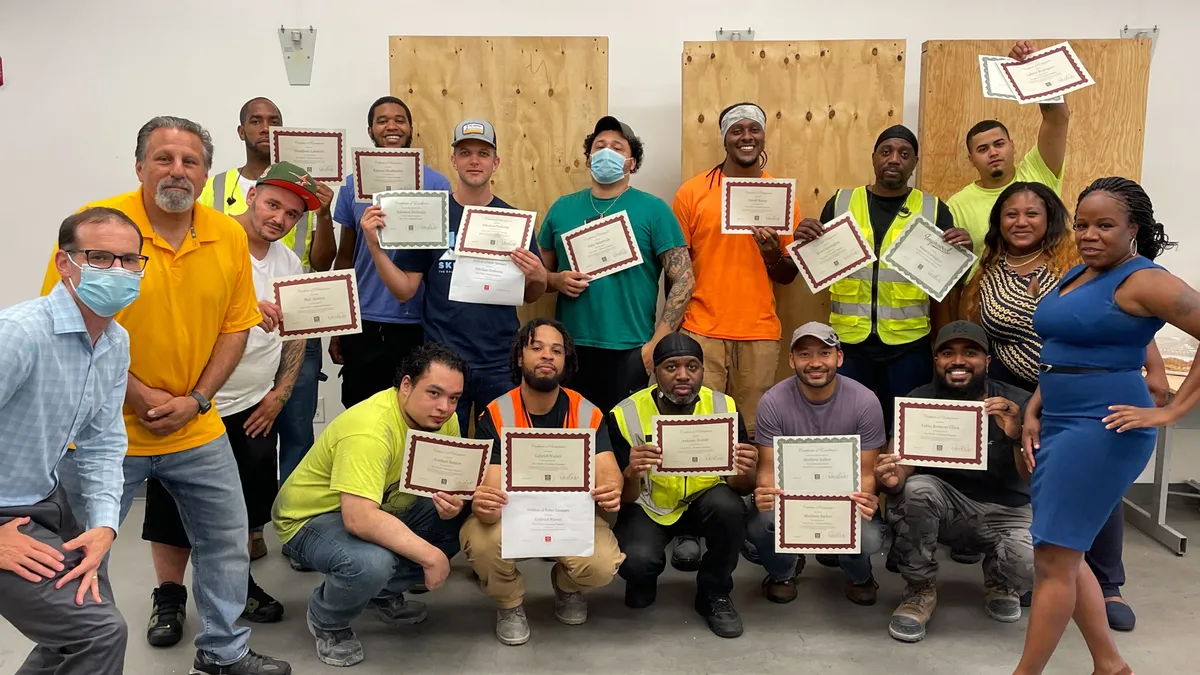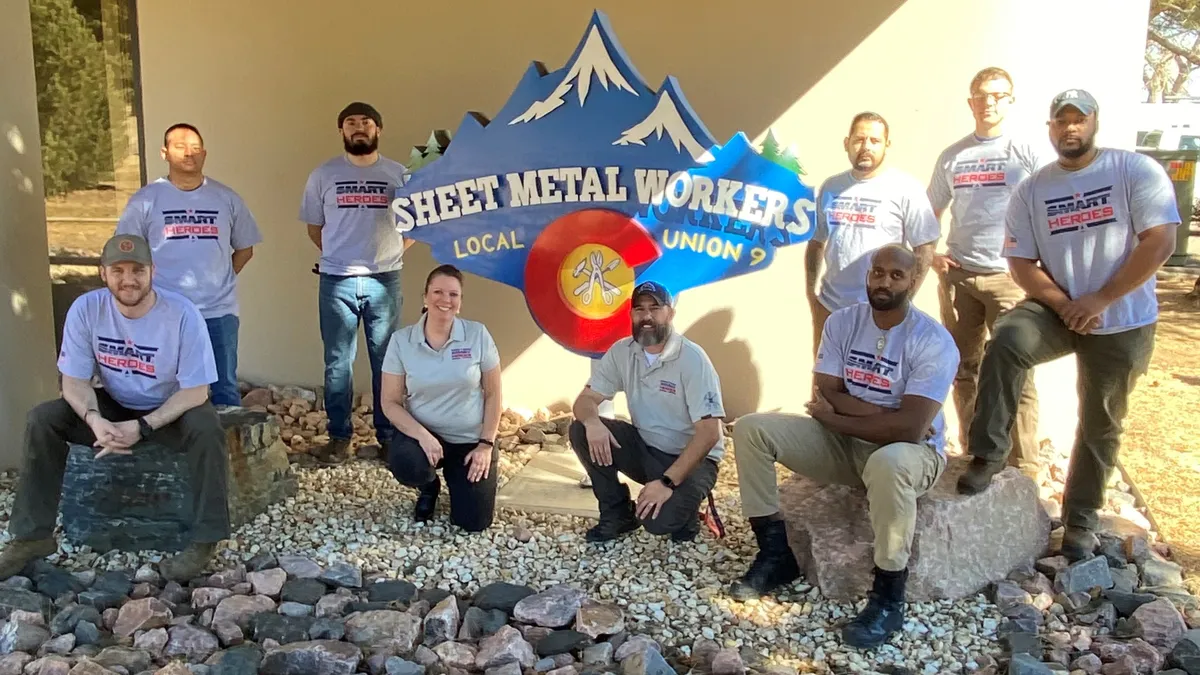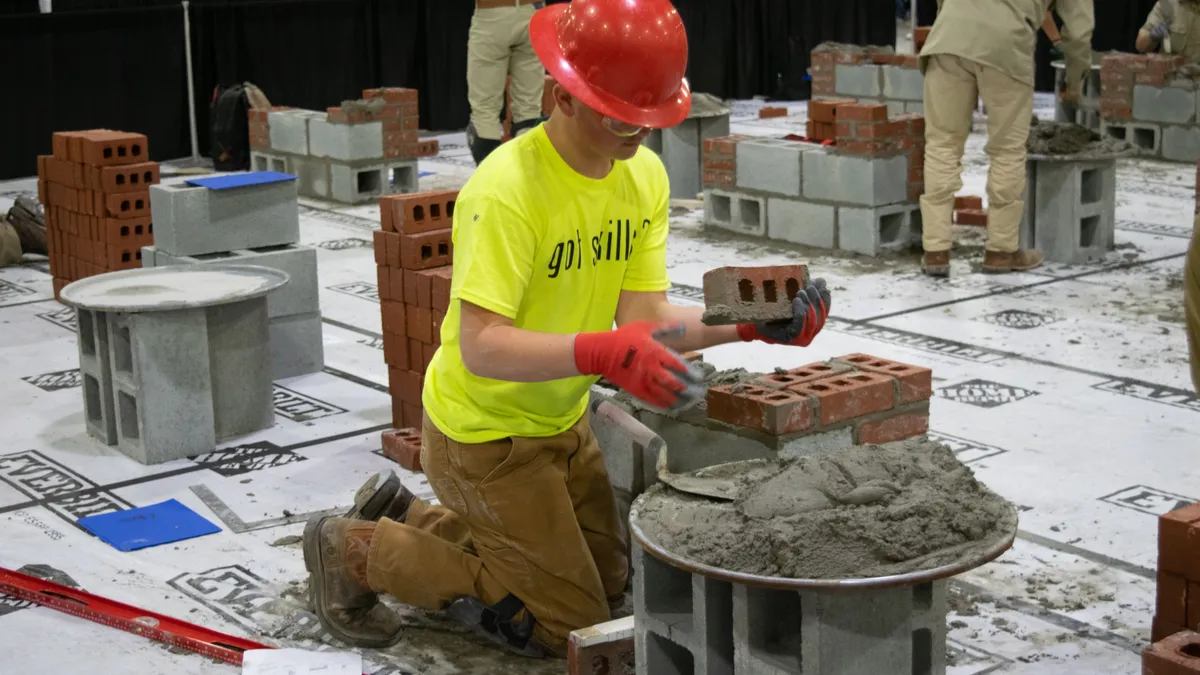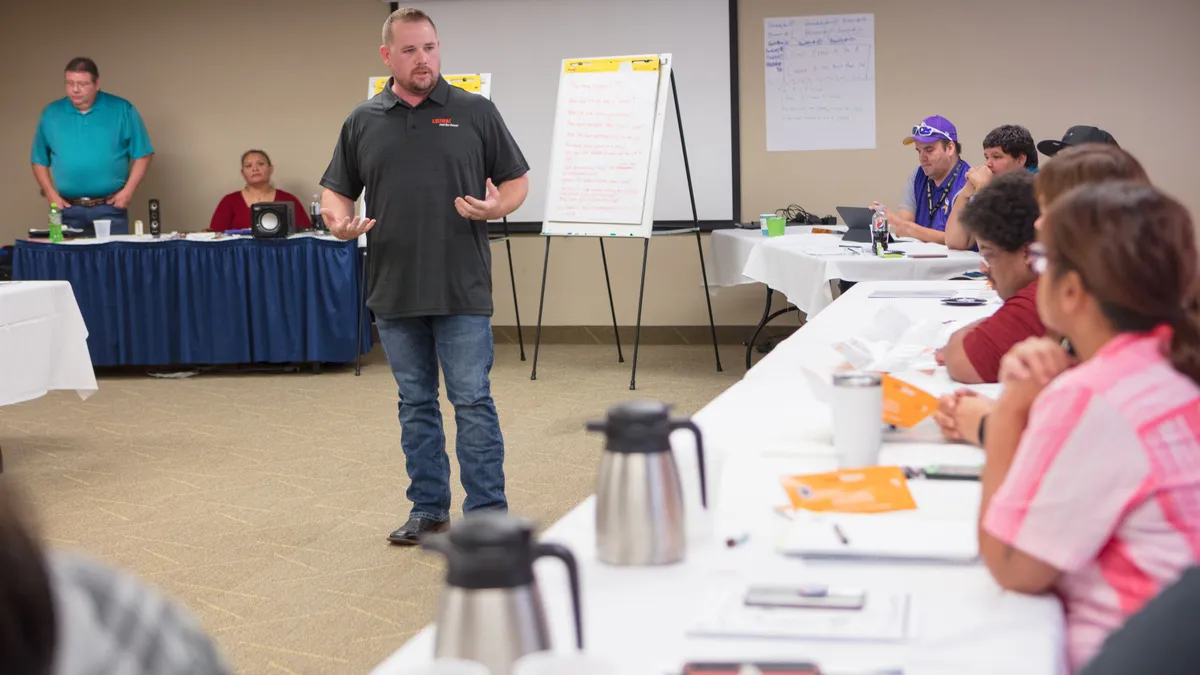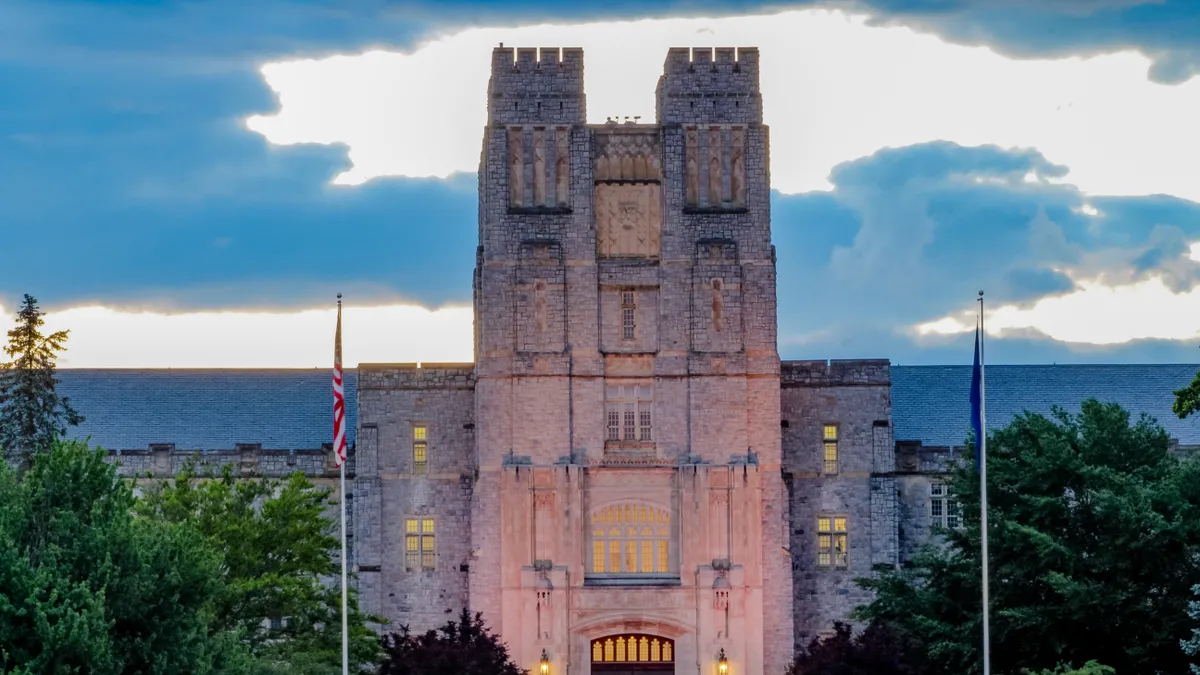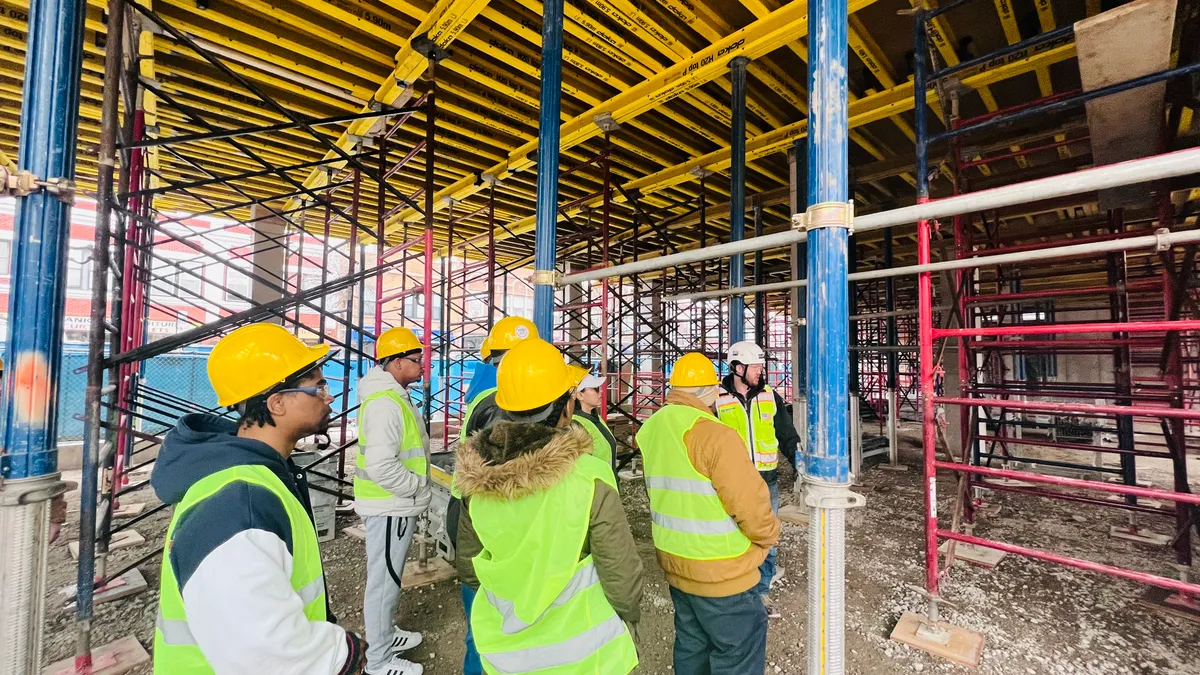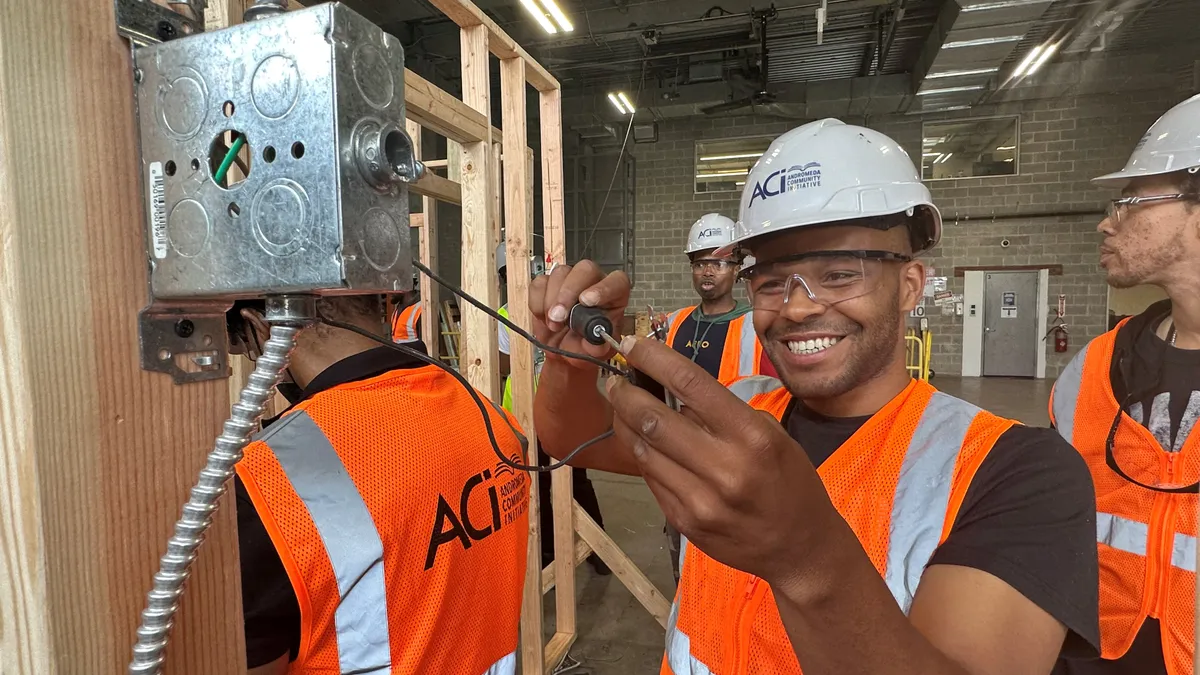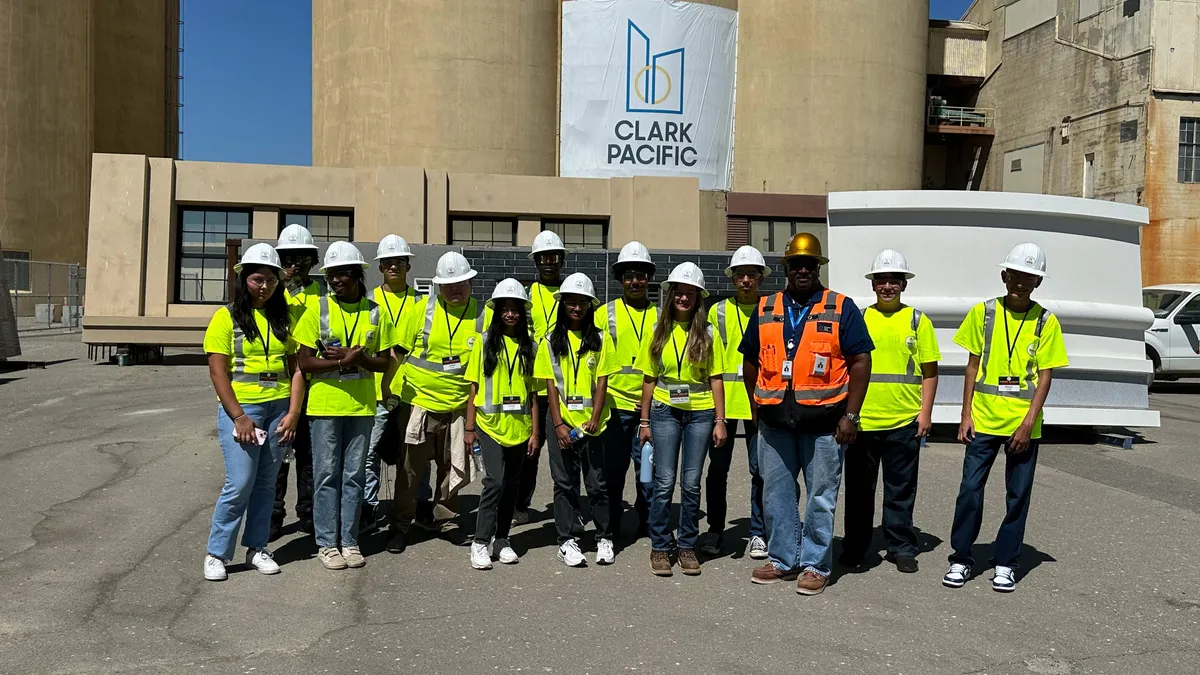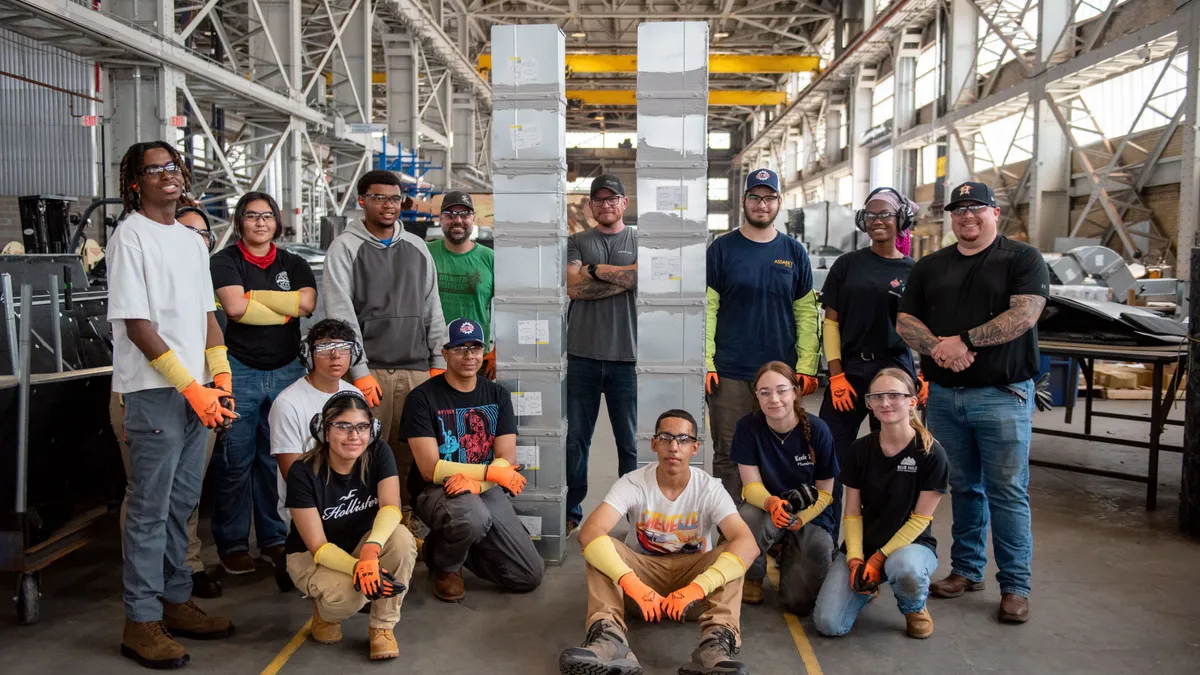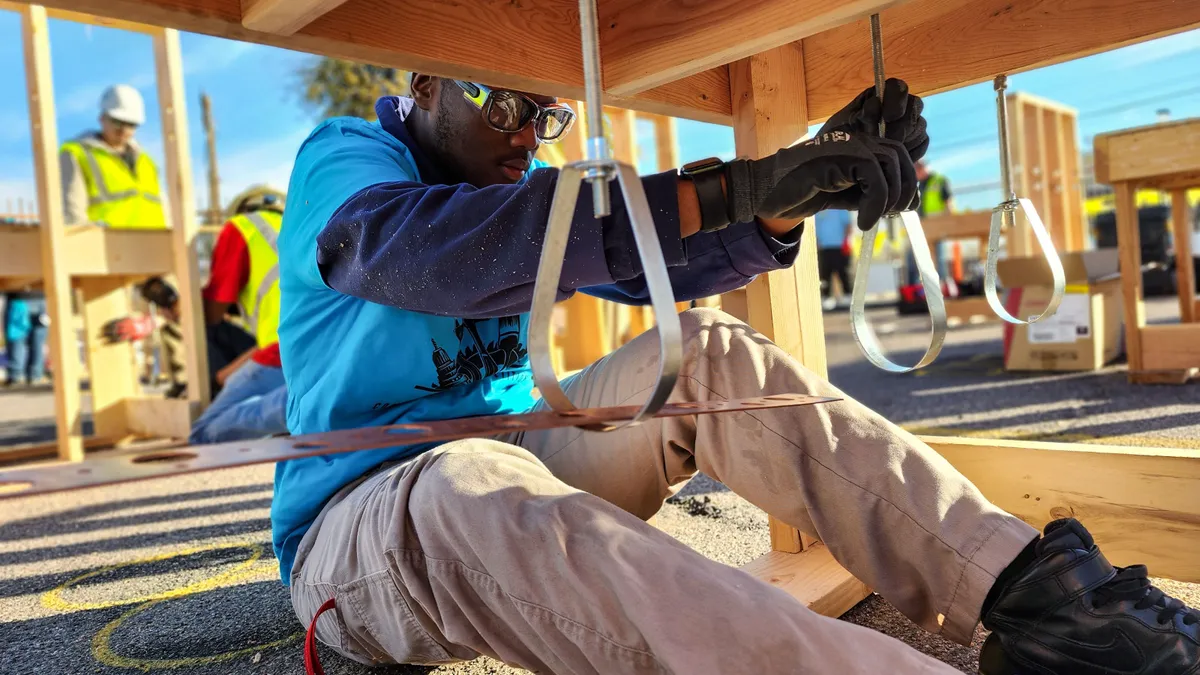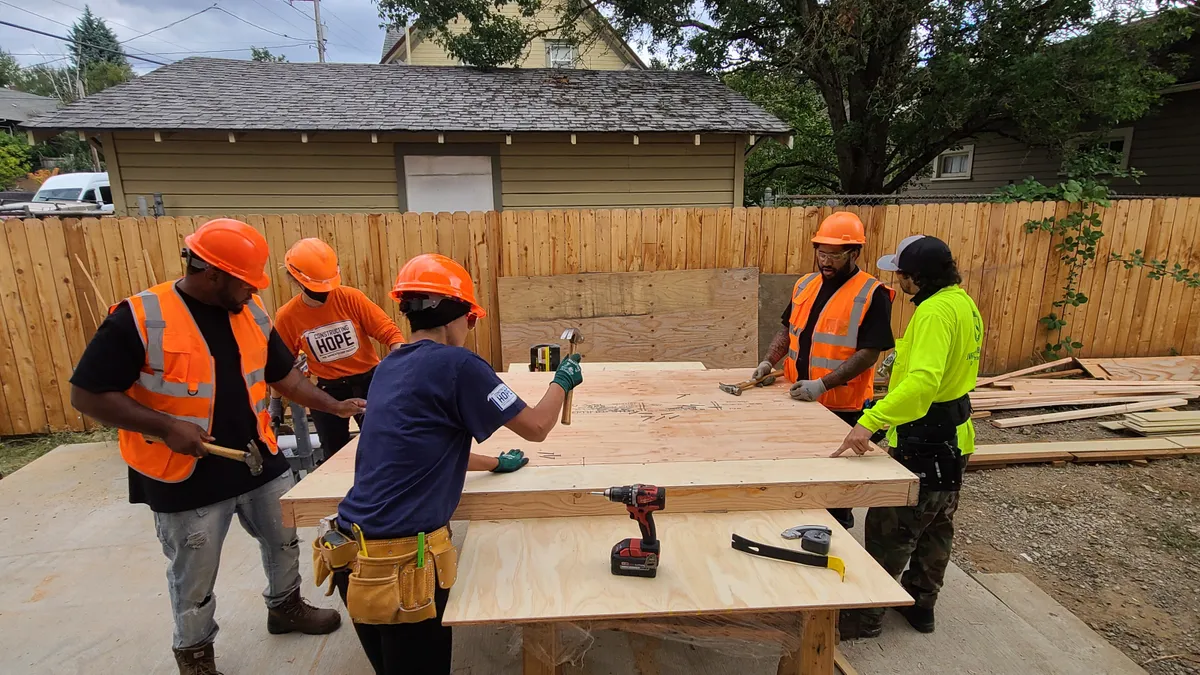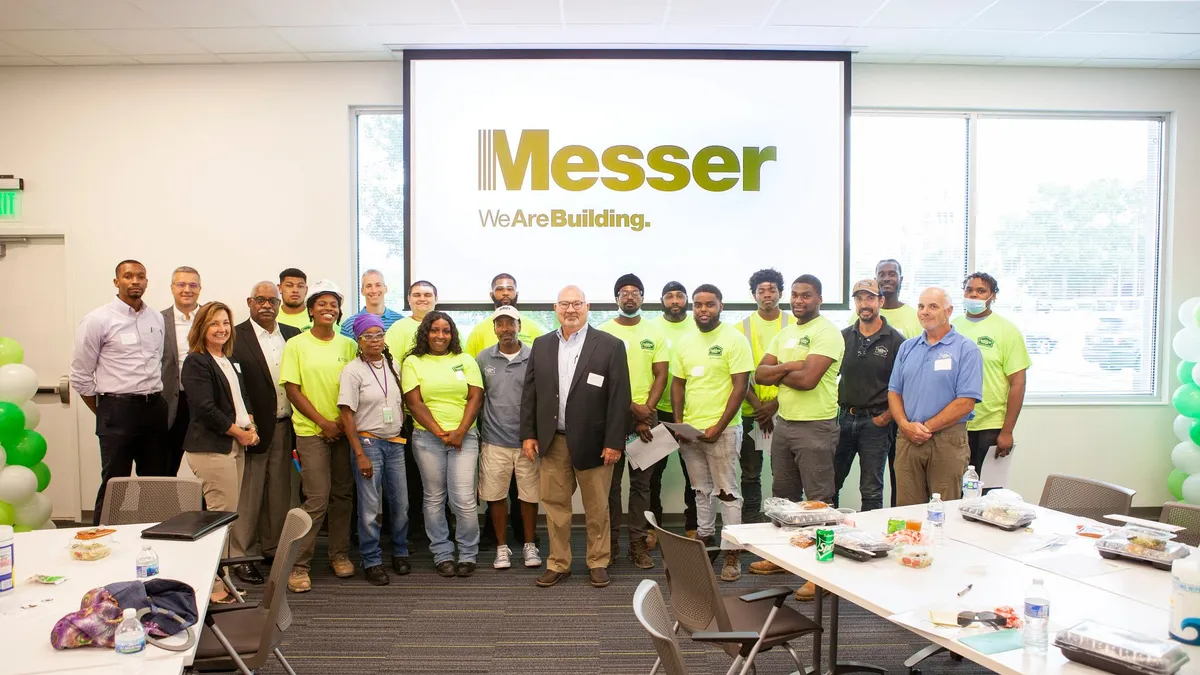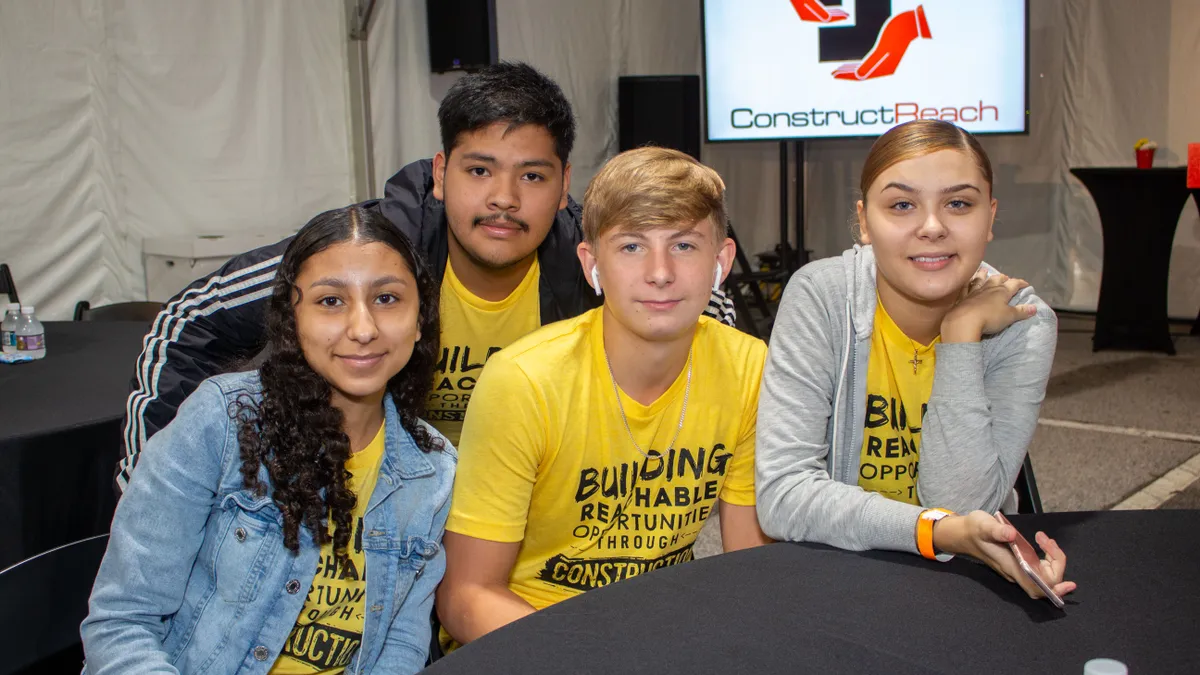The construction industry faces a stark shortage of workers, but programs and people across the country are working at the local level to solve the problem. This series highlights the grassroots efforts helping to recruit the next generation of construction pros. Read previous entries here.
Do you know of a group that is helping to attract workers to the construction industry? Let us know.
In the 6th grade, Madison McBride’s mom asked her if she wanted to attend an all-girls construction camp. McBride, who said she loved working with her hands, agreed to try it out.
Now a senior in high school, McBride has attended the Mentoring young Women In Construction Camp in Philadelphia for six summers straight. During that time, both McBride and the camp have grown. She says it showed her a strong career path and bolstered her confidence, while the number of campgoers has risen from about 15 to over 40.
The National Association of Women in Construction’s Philadelphia foundation runs the free MyWIC camp. Attendees travel around the Philadelphia area, learning basic safety and sampling different trades. This year’s camp began July 6 and ends Aug. 11.
A decade-plus in the making
The camp has existed in one form or another for about 14 years, according to Mary Gaffney, president of NAWIC Philadelphia’s Foundation. Back then, Gaffney was a donor and member of NAWIC Philadelphia, but eventually the organization created the nonprofit foundation, which she now leads.
Today, Gaffney runs the camp along with the help of volunteers, unions and sponsors every summer.
NEST, a southern New Jersey-based integrated facilities management firm, is the contractor sponsor of the camp, and has been for the last three years, according to CEO Robert Almond Jr.
As a manager of commercial properties in the U.S. and Canada, NEST sends out workers across trades to provide both scheduled and reactive maintenance. During the COVID-19 pandemic, Almond said he noticed how much the demand for skilled workers outpaced the available pool.
“It really stuck out to us that we see how much revenue is out there, but the kids don’t see it, they’re not being told about it,” he said. “If we don’t get in front of this [labor shortage] soon, I continue to say it’s our next pandemic.”
As a result, NEST came across MyWIC, and partnered in hopes it could help raise awareness about those very careers.
Summer days
The first thing campgoers get at MyWIC is a first aid training lesson, before they’re handed a backpack with PPE and basic tools, Gaffney said. After spending a few more days on safety training and orientation, attendees and volunteers visit construction sites throughout Philadelphia where the girls can learn more about specific trades.
“Each trade location, they spend the day there, where they meet women in the trades, but they also learn about the trades. The girls ask tons of questions,” Gaffney said. “And all along the way they’re learning about women in the trades, what their favorite part of the day is, how much money they’ll make, why there’s great opportunities.”
During those visits, the teens will often participate and get hands on by making birdhouses, toolboxes or even a flower on a stem made from sheet metal.
NEST also provides outings, Almond said. This summer they’ll tour a condominium complex and learn about the various trades that go into constructing and operating a commercial property, such as HVAC work.
What’s out there
Both Gaffney and Almond spoke to a sticking point many contractors have had with recruiting workers over the past few decades: the push for higher education.
“We’re trying to break the stigma that college is the only option, by telling the girls ‘look at this building, you could be a part of something like this,’” Almond said.
Gaffney noted that when she attended high school, she had shop class, as did Almond. Now, this camp fills the gap created by a lack of early trades education.
“We want them in the trades, it’s just such a fulfilling job in my view, and it’s to help them be very independent,” Gaffney said.
Nonetheless, McBride said she does plan to attend college, albeit with the tools she’s gotten from camp to draw the blueprint for a career in construction. With a business management or marketing degree, she hopes her knowledge of the trades will equip her to run her own business.
“Women bring something different to the table, they think differently than the men do, they see something that men don’t,” she said.



